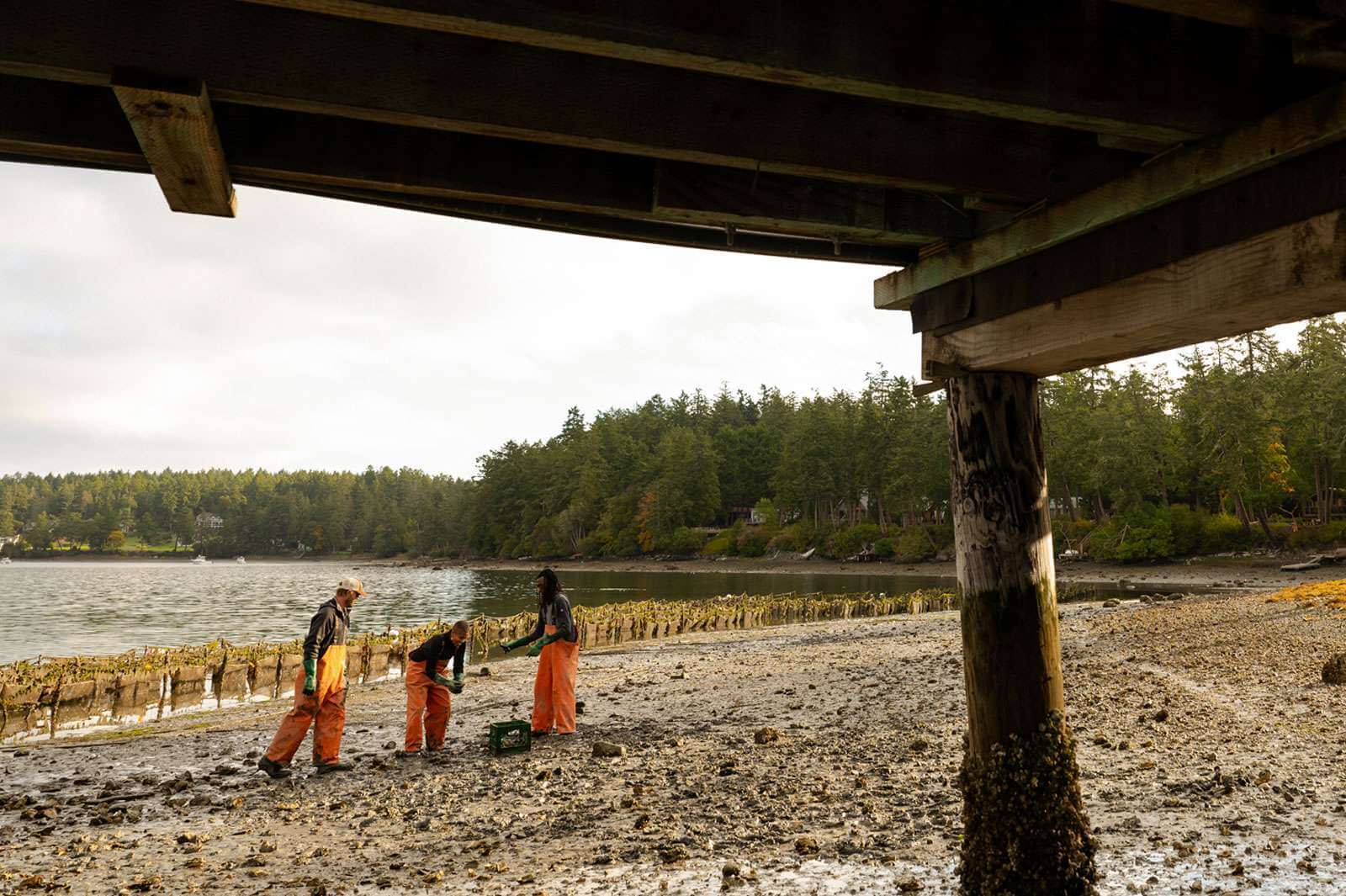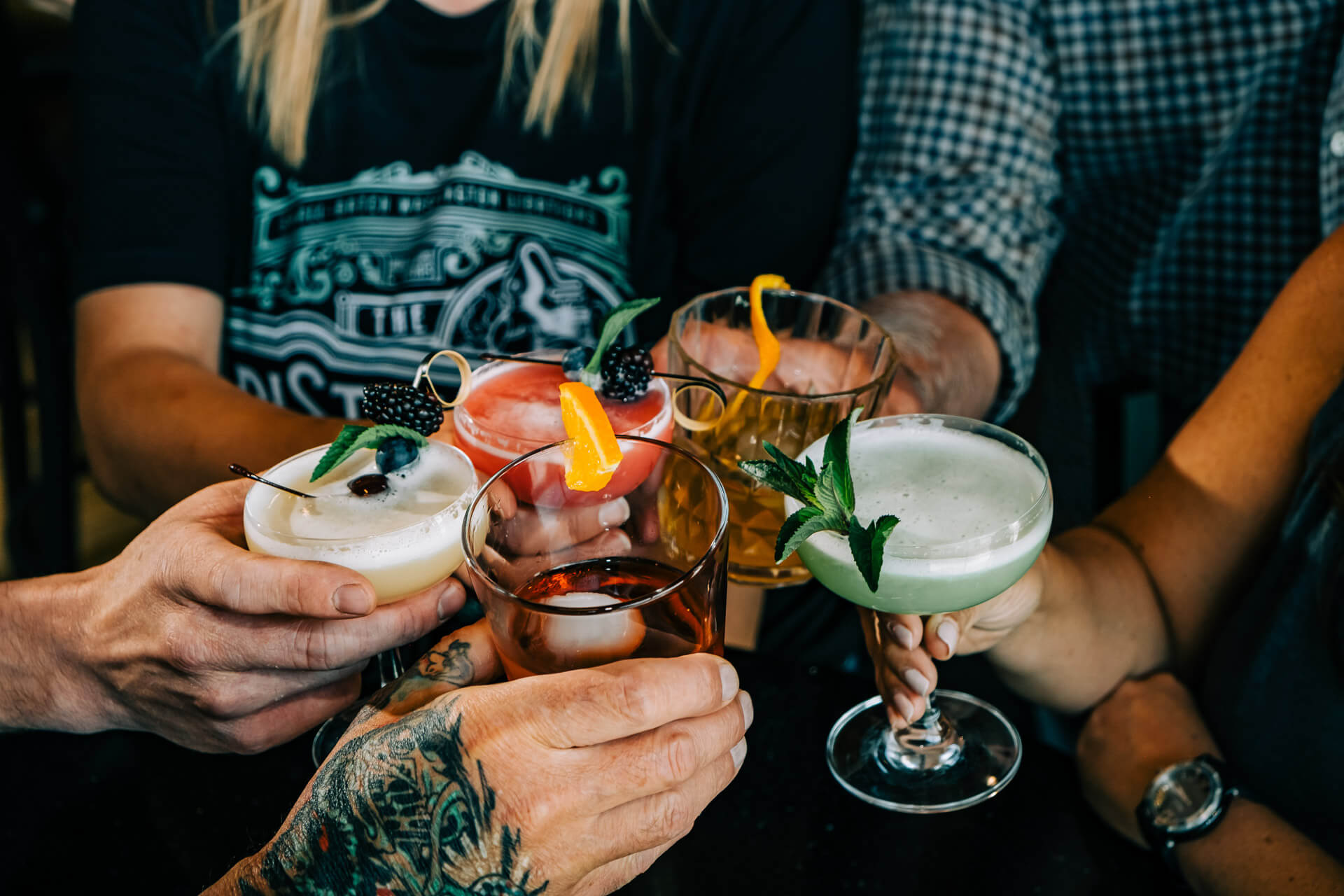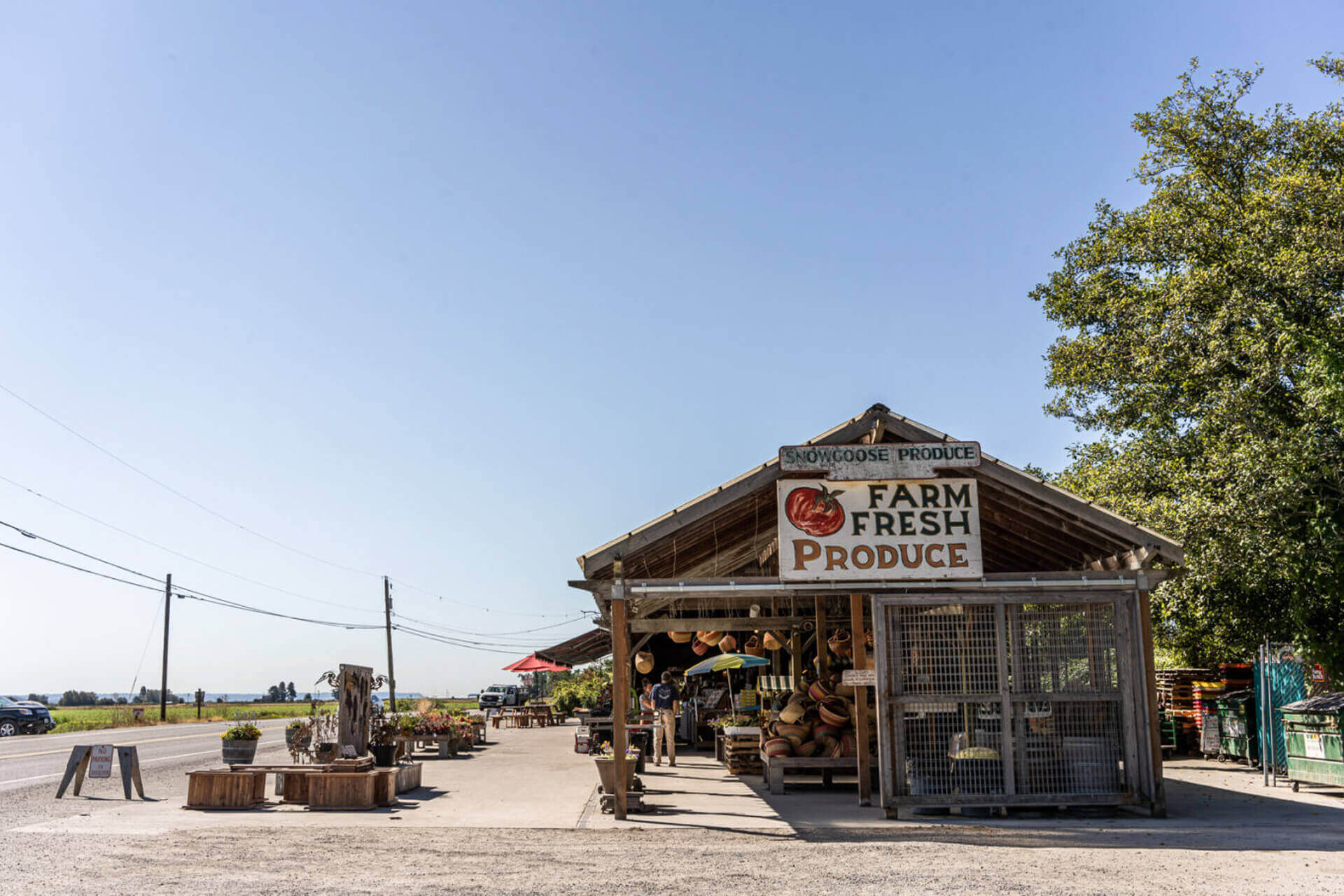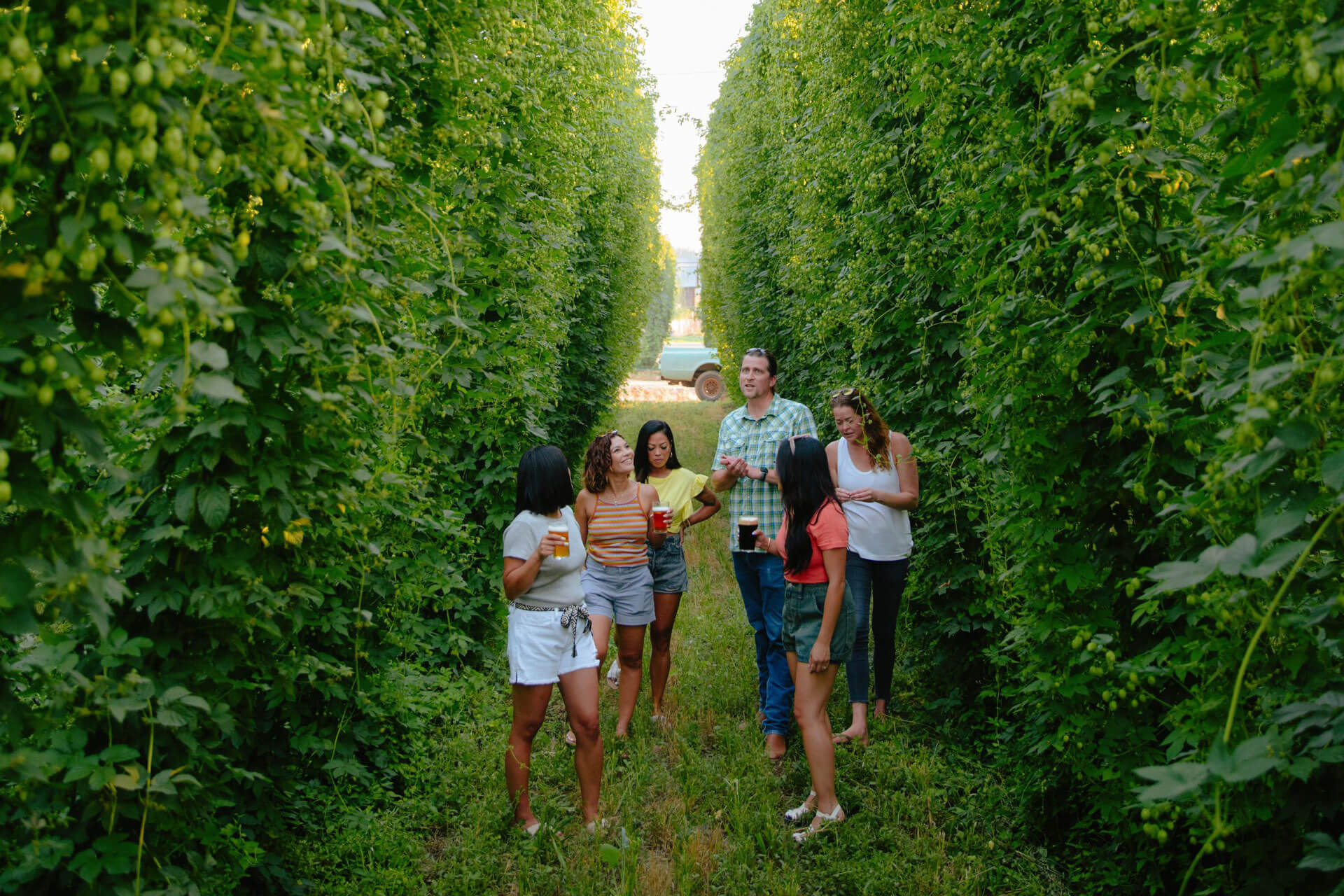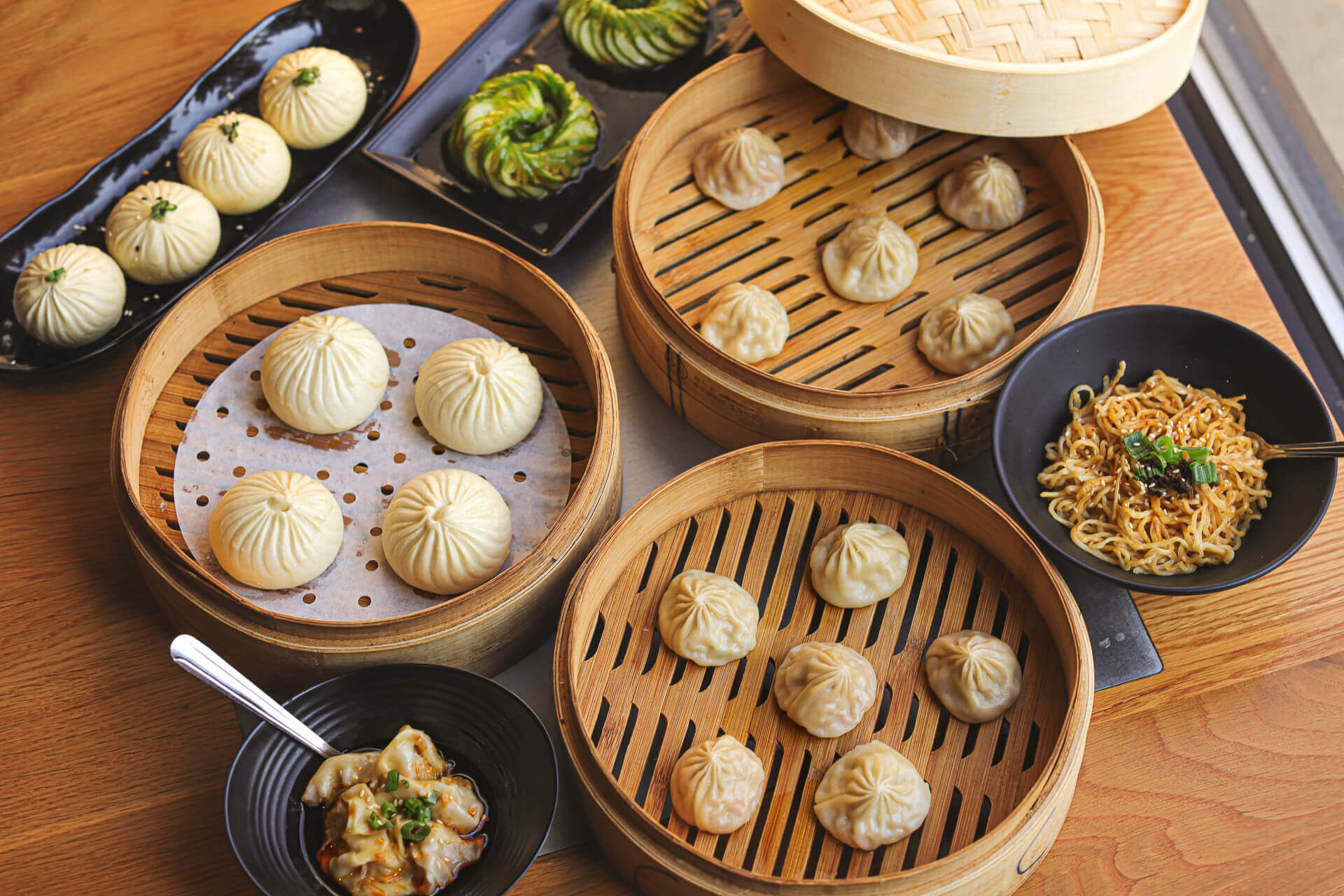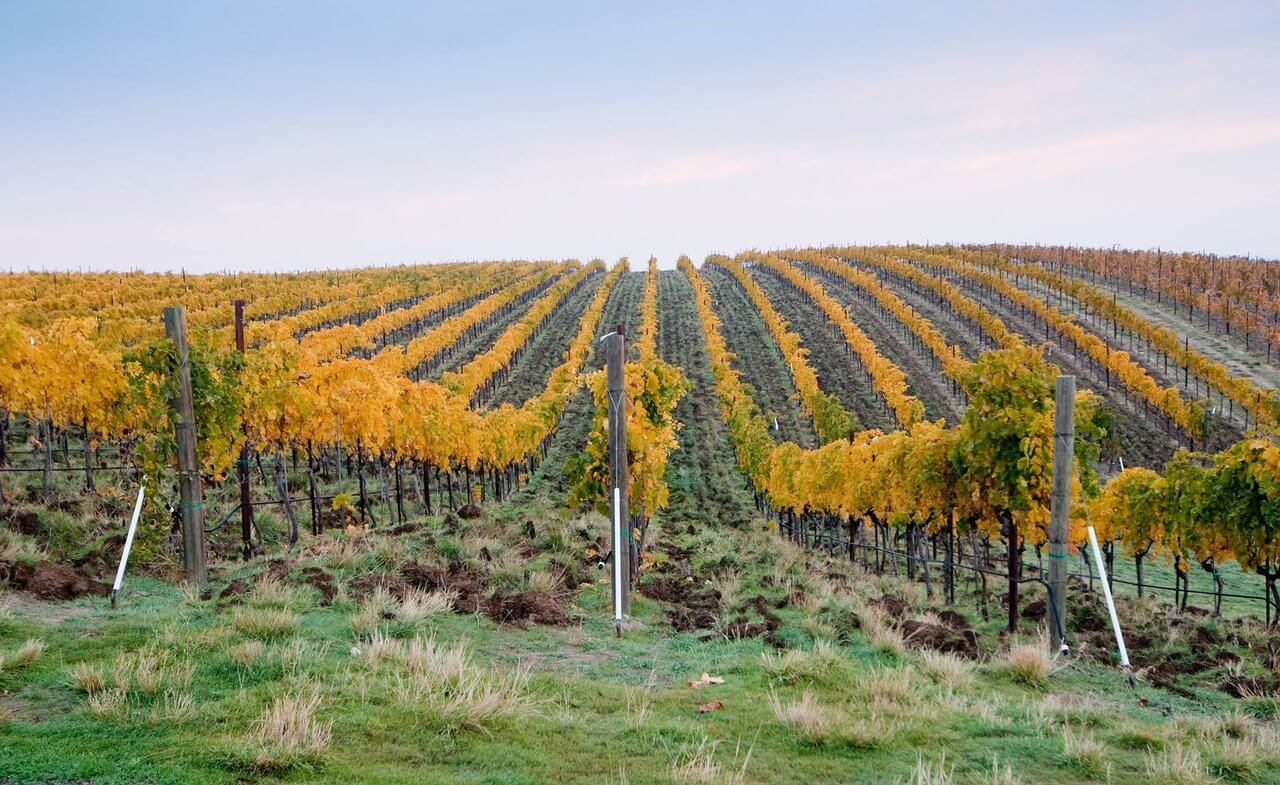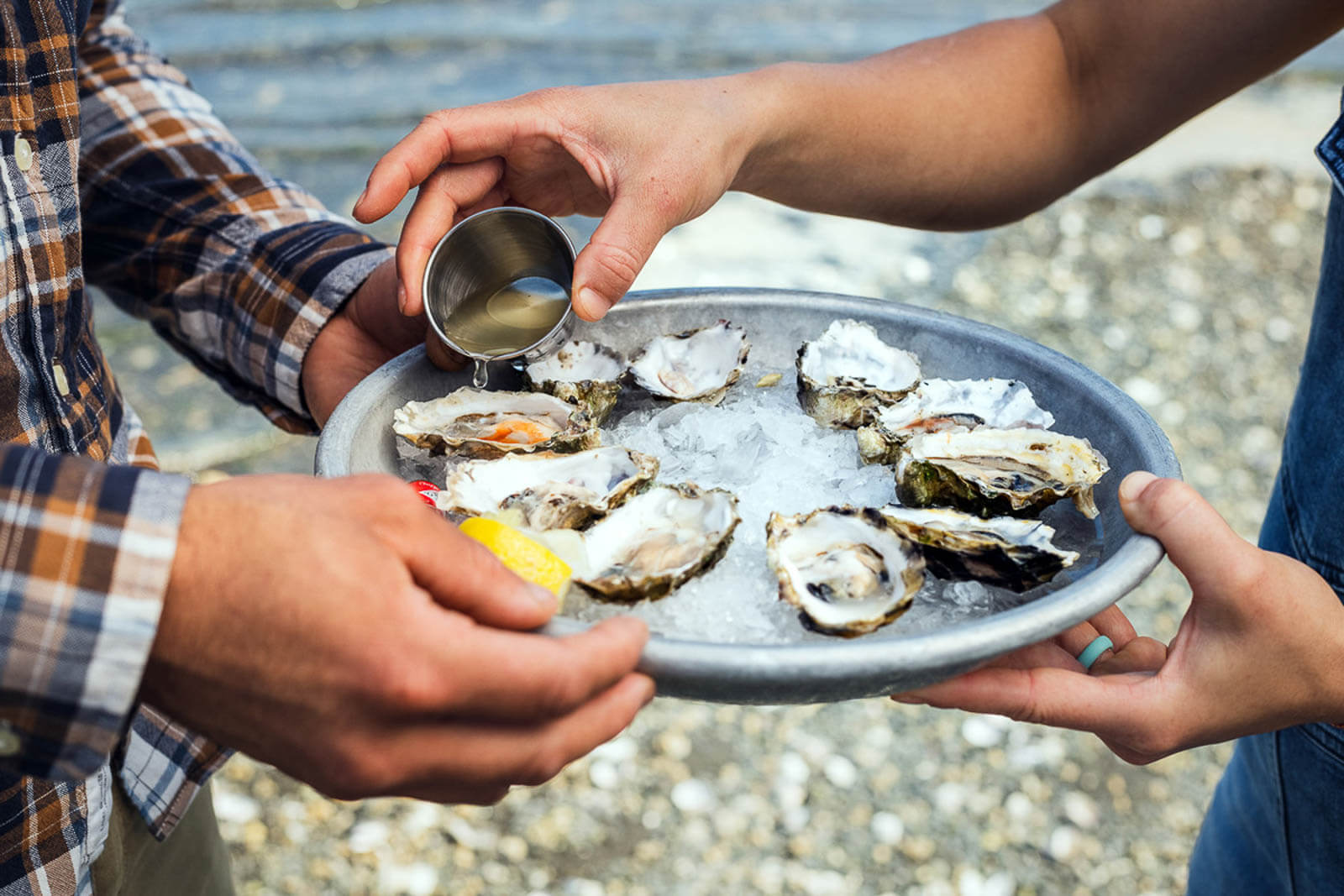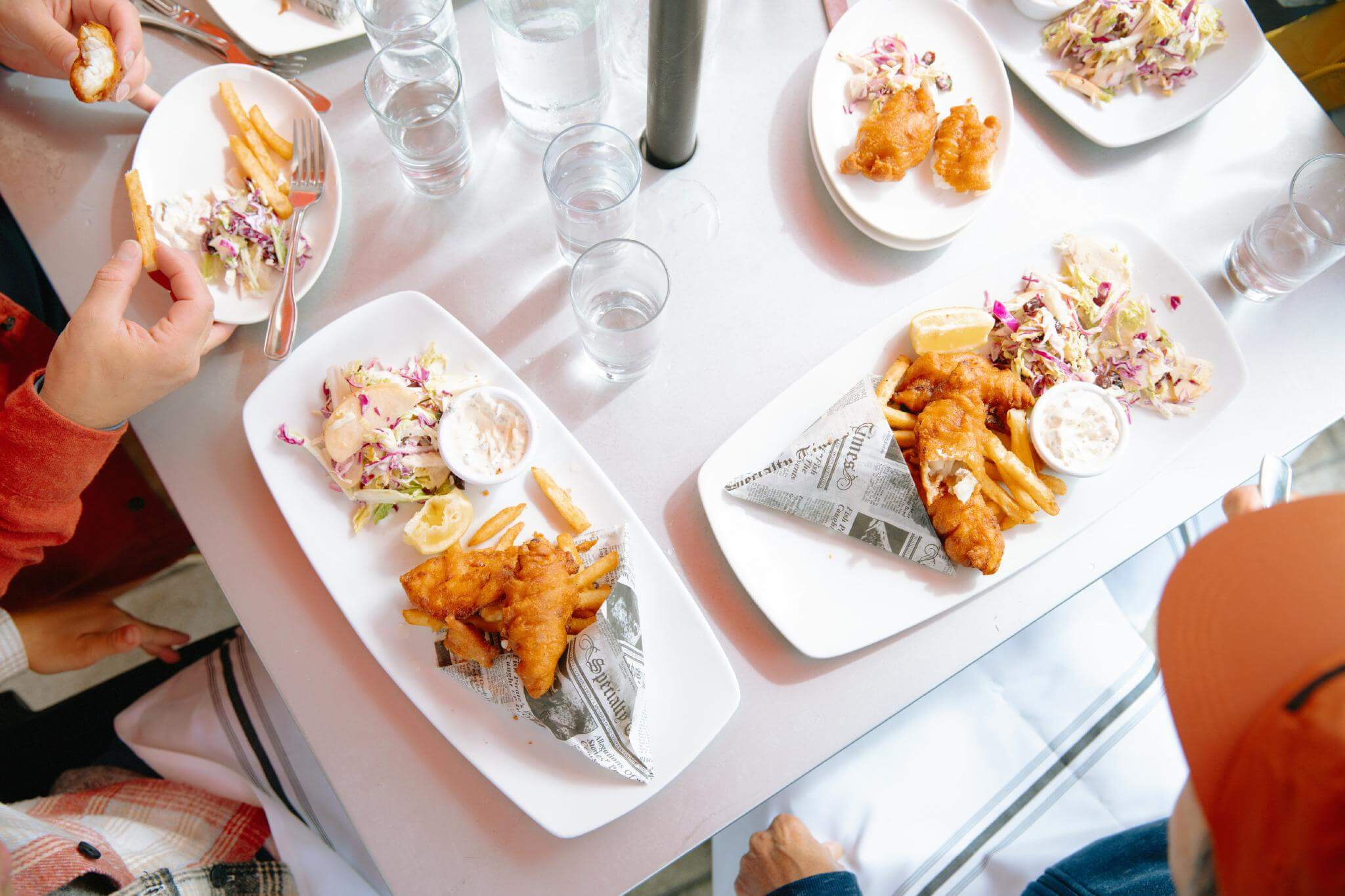
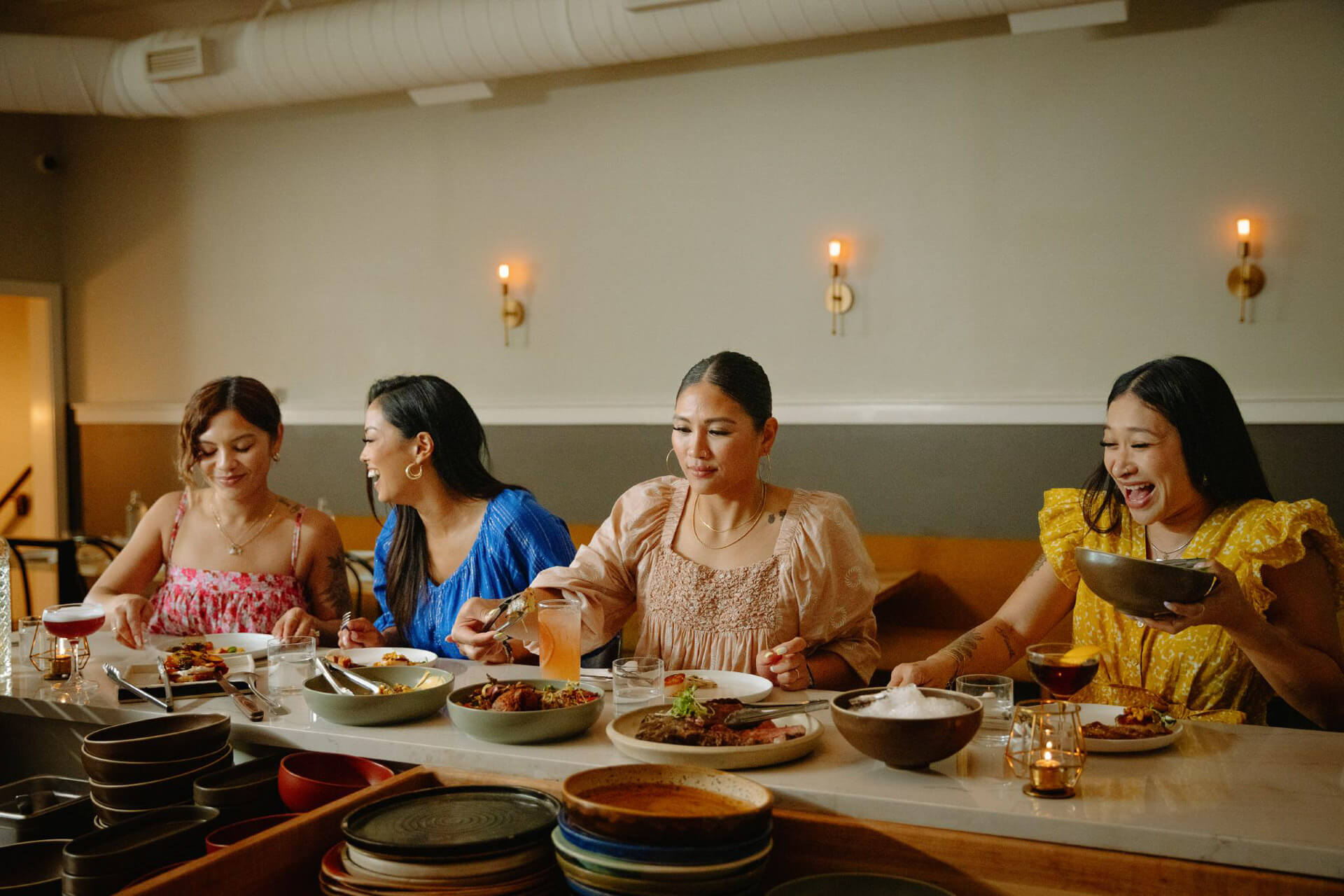
Support Local
One of the most rewarding parts of traveling is connection – both with oneself and with others. When visiting Washington, we encourage learning about and connecting with the state’s people and diverse communities.
Whether you’re interested in sampling local produce at a farm-to-table restaurant, immersing yourself in the work of Washington artists, or learning about the history and contemporary culture of one of Washington’s many Native American tribes, responsible travel means making a conscious effort to support the local businesses, communities, and makers who call Washington home.
Eat Local
With a rich agricultural history and world-class chefs committed to sourcing local ingredients, there’s no shortage of farm-to-table restaurants and culinary experiences. Sip wine at one of the state’s many family owned wineries or grab a beer crafted with hops from Washington’s Yakima Valley. Washington’s farmers, producers, and chefs take great care in highlighting the bounty of the land through seasonal, sustainable methods.
Launched in 2011 as part of Sustainable Connections’ Food & Farming Program, Eat Local First helps visitors and locals alike easily find restaurants, farmers markets, and food businesses that purchase from local food producers. Visitors can search by product, location, and even values to help find everything from U-pick farm experiences to women-owned businesses.
Spend Local
In addition to eating locally sourced food and supporting local restaurants and farms, you can also make a positive impact by spending your dollars at local businesses. Choosing local tour operators, shopping at small businesses, and visiting local museums and galleries all help support the people who live and work at the destinations you visit.
Respect and Support Native Communities
Washington State is home to many Indigenous communities. There are currently 29 federally recognized Native American tribes, as well as a handful of longstanding tribal communities without official federal recognition. These tribes have lived in what is now Washington State from time immemorial and have their own histories, contemporary cultures, festivals, languages, and traditions.
Across the state, revenue from tribal enterprises and cultural heritage tourism contribute to critical tribal services and the local economy. Whether you’re visiting tribal land or exploring Washington’s outdoor spaces, it’s important to remember the history and present-day ties that many tribes have with the land.
Thinking about visiting Native American reservations or cultural sites? Here are some general tips to keep in mind.
Confirm Access
While many tribal communities welcome visitors, be aware some reservations and tribal areas may not be open to the public. Before attempting to access recreation or attractions on Native American land, please visit the specific tribal government website for information or call the tribe directly with questions. Once on tribal land, be sure to respect signage and follow all local laws, as tribal governments are separate entities with their own rules and regulations.
Similarly, while many tribes welcome visitors to large festivals, please be aware that some events are sacred, private spaces.
Get Permission for Photos
Before snapping a photo of artwork or dancers at a festival, make sure to get permission for photography, especially if it involves people.
Act With Respect
When visiting museums, reservations, and other culturally important sites, please act respectfully. Follow Leave No Trace principles and do not touch, deface, or remove artifacts or other natural resources from outdoor spaces.
